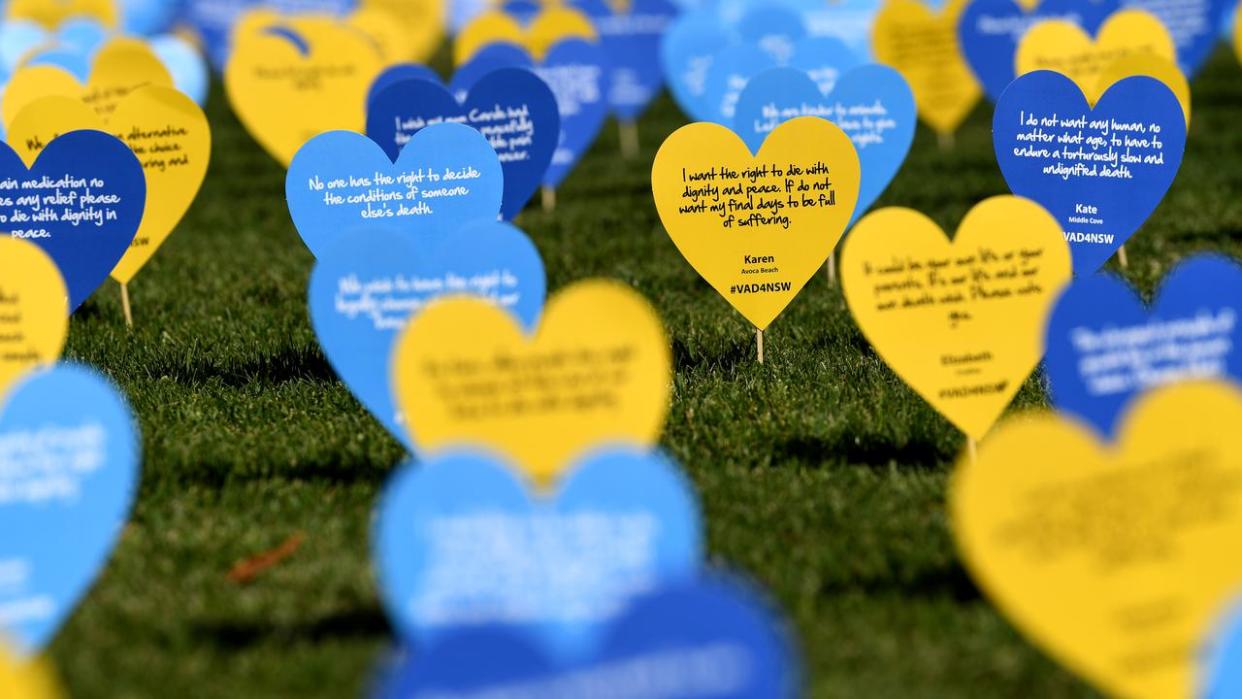Change allows hundreds to end life on their own terms

More than 100 people have been helped to end their own lives in the first three months since euthanasia was made legal in NSW.
The state was the last to introduce a legislated voluntary assisted dying regime for people with incurable, terminal illness.
In its first report into the scheme, covering the three months after legalisation in late November, the NSW Voluntary Assisted Dying Board revealed 373 people had been deemed eligible.
Of that cohort, 131 ended their lives during the same period.
The vast majority of applicants for euthanasia were approved, with the largest share looking for assisted death due to cancer conditions.
Health Minister Ryan Park said it was important that people suffering advanced illnesses, that were expected to end their lives, had the chance to choose the timing of their death.
"Ensuring safe and equitable access for all eligible people underpins the approach to voluntary assisted dying in NSW," he said.
"I extend my sincere condolences to their families, friends and loved ones."
Most of the people who applied for assisted dying were at least 60 years old, while no requests were received from anyone aged under 30.
Only about one-third of the applicants lived in Greater Sydney, despite the city housing about two-thirds of the state's population.
Assisted dying is typically performed through lethal injection and patients can opt to administer the dose themselves, with roughly 30 per cent choosing to do so.
Not every patient who receives approval ends up choosing to die, but board chair Jenni Millbank says granting access gives terminally ill patients a sense of power over their conditions.
"Knowing the substance is available to them gives these people the power of choice, and may provide a degree of relief and comfort in their final days," she said.
Accessing assisted dying requires three separate formal requests, which are assessed by two independent practitioners to make sure they are made voluntarily.
Requests cannot be made on someone else's behalf and pressuring a patient to make a request is a criminal offence.
Doctors are prohibited from taking applications remotely in telehealth consultations, posing a challenge for some applicants in regional areas.
The board was advocating for that restriction to be overturned, Professor Millbank said.
Lifeline 13 11 14
beyondblue 1300 22 4636


